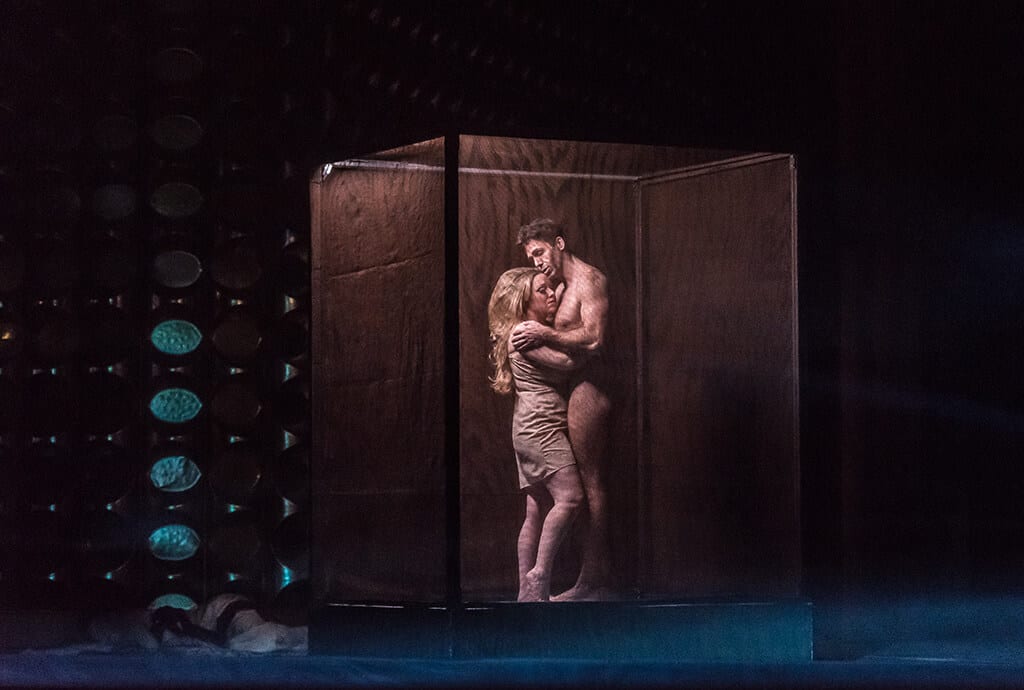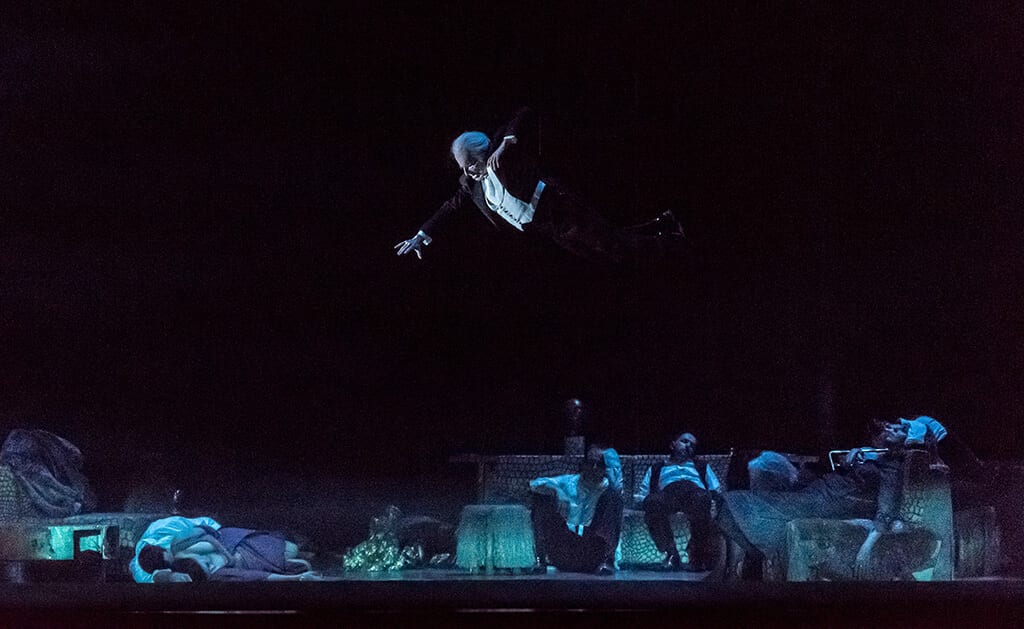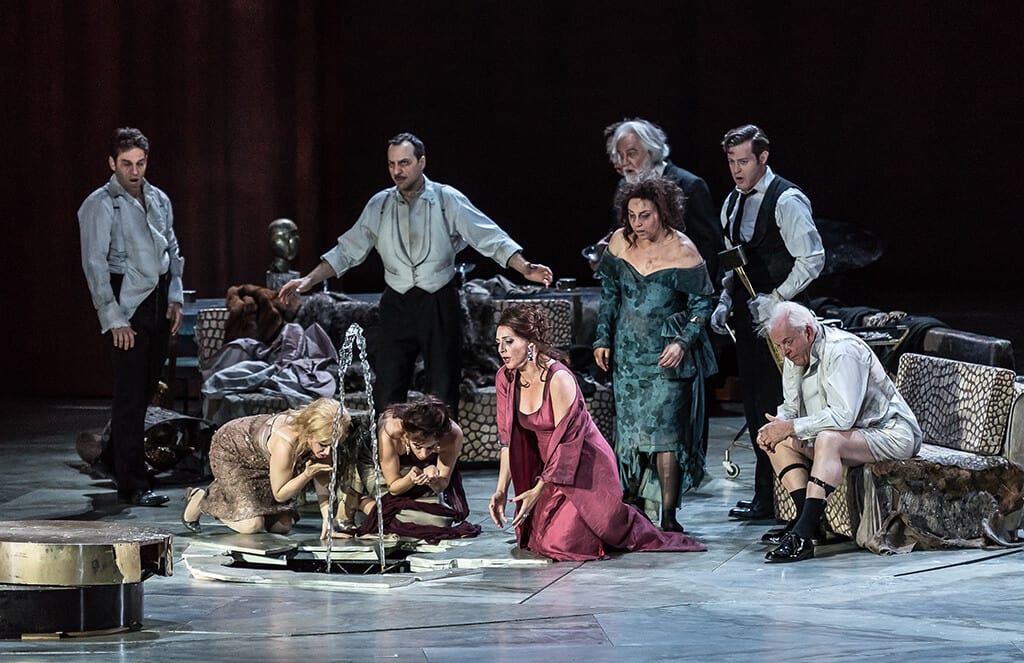Thomas Ades is the real thing, a British composer writing big works for the operatic stage. In The Exterminating Angel, his third opera, the way he deploys the wonderful cast of singers and the superb Covent Garden orchestra is simply masterful, as is the skill with which he moulds Bunuel’s story into dramatic shape. The musical language he deploys is even more varied than in his widely admired Tempest and this work, first seen last year in Salzburg, fully justifies the faith placed in him by the major opera houses who have combined to bring this work to their stages.
The story is based on Spanish filmmaker Luis Bunuel’s 1962 surrealist masterpiece. A group of wealthy people arrive at the mansion of Eduardo de Nobile for supper after an opera. The guests include performers from the opera and other friends of Nobile. The servants start inexplicably to leave the house and, after the chaotic dinner, the guests find that they are unable to leave the house – the reason for their being ‘trapped’ is never explained. As days pass, the veneer of respectability is stripped away and the increasingly desperate ‘prisoners’ fall apart, succumbing to despair or violence. When they finally manage to find a way to free themselves, they emerge into an uneasy world where soldiers and riot police are roaming the streets.
The opera demands large forces – 12 solo singers and a large chorus, and a big orchestra with extra percussionists and unusual instruments – including the ondes martenot which adds a surreal other-worldly tone at some key moments. The cast is uniformly fine. Charles Workman and Amanda Echalaz are the unfortunate hosts and both turn in outstanding performances but the minor roles are studded with stars; John Tomlinson plays the rationalist doctor and Thomas Allen the conductor – both are splendid. Anne Sophie von Otter plays Leonora, the dying woman in love with her doctor – “transference” he sings. The extraordinary soprano Audrey Luna, who sings higher notes than I have ever heard on the Covent Garden stage, is Leticia the opera singer fresh from her performance. Though Ades’ sound world is dramatically convincing, his writing is often unsympathetic to the female voices, demanding harsh tones and huge ranges – true to the drama but unkind, I fear, to the singers.
Bechtler’s set is a work of two halves. While the focus until near the end is the room in which the guests are ‘trapped’, we are always aware of the world outside the mansion and the increasing sense of a society on the brink of collapse and dictatorship – uneasy parallels with the current international order perhaps? We have live sheep and a pantomime bear, a hole in the stage floor through which water gushes, and a figure flying through the air who sets off one of the conflicts which become more frequent as the imprisonment drags on. But in case this all sounds too gloomy, there are moments of humour, some witty, some black. The pianist is urged to “play something by Ades” and the doctor’s euphemism for his patients’ death is that they will soon be bald.
This is a major work which glories in the ambiguities which it conjures up and is consequently impossible to sum up. For me the fact that the ‘prisoners’ are finally released by the singing of the aria that Leticia refused to sing at the beginning of the work is a hint of optimism …though that is all too soon undermined by the threatening world into which they emerge. This is an important work by an important composer that will reward the brave souls who see it more than once.




